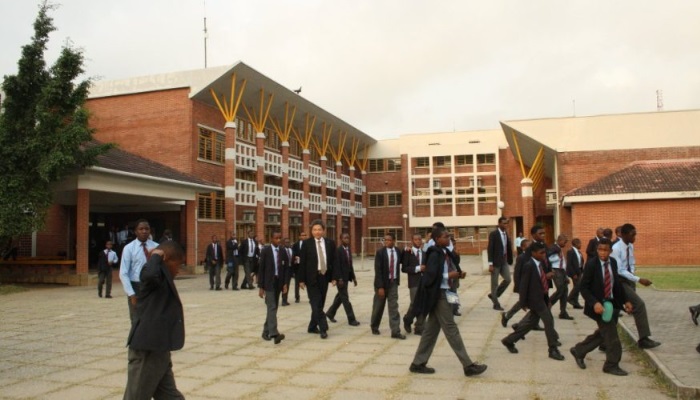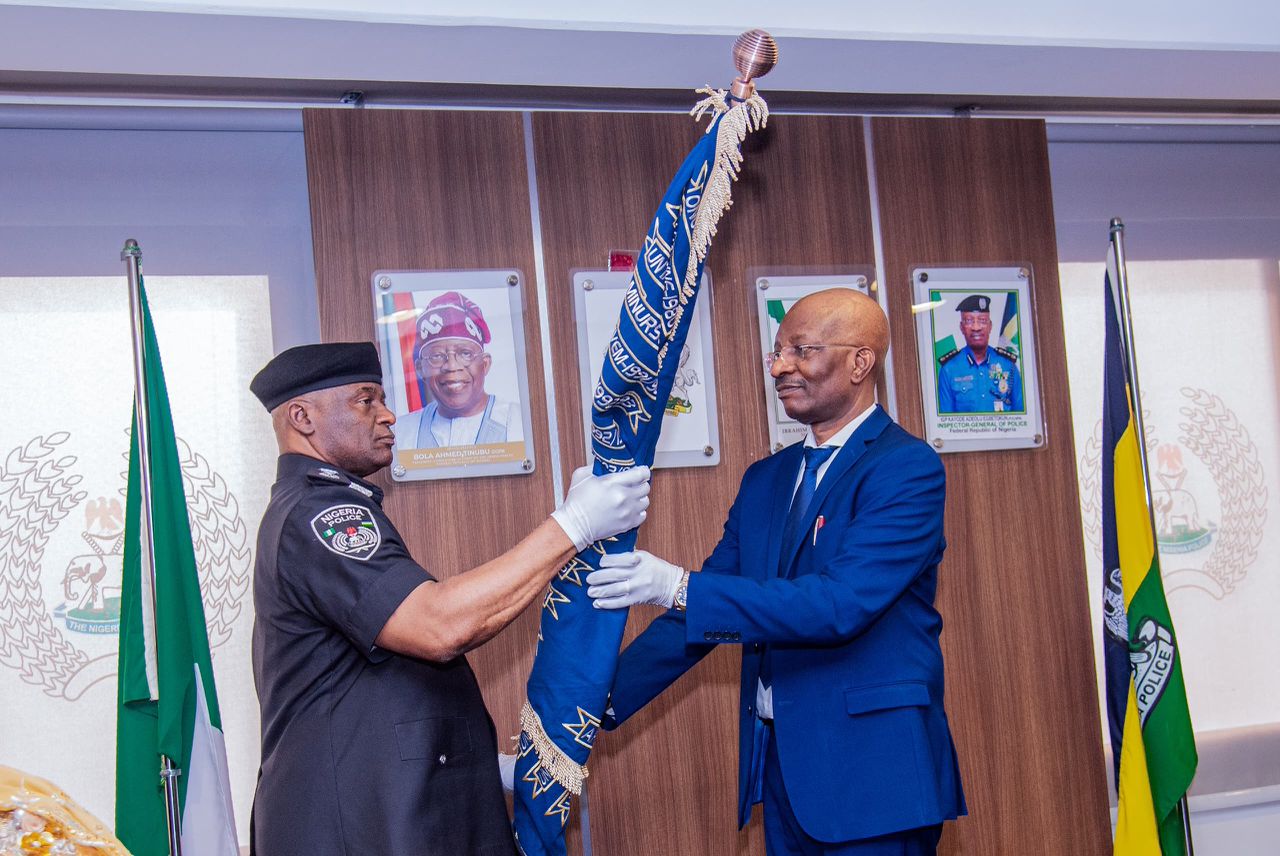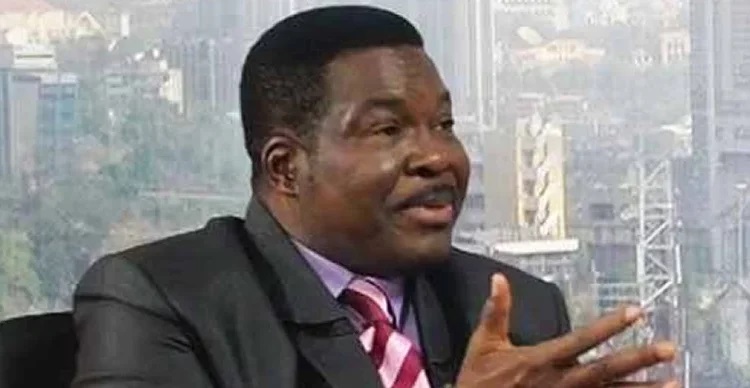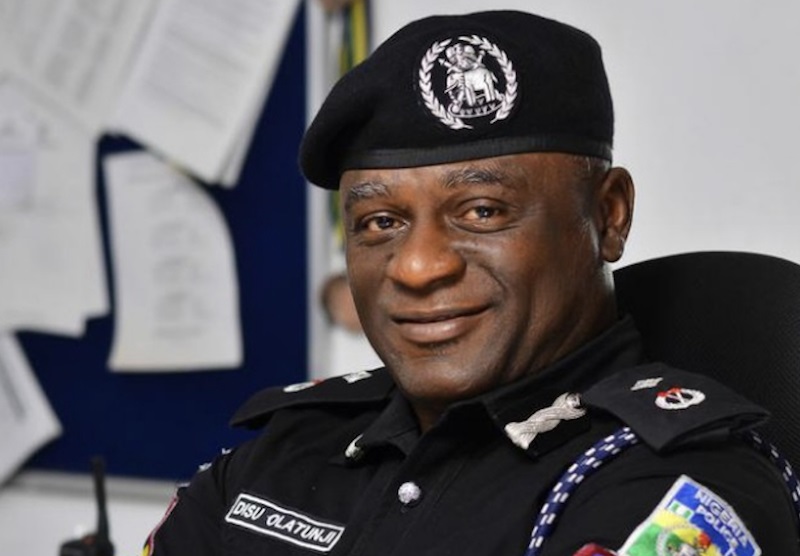Whitesands School, Lekki, Lagos, on Tuesday unveiled Nigeria’s first electromagnetic goal-line technology at the 2025 World Robotic Olympiad (WRO).
The News Agency of Nigeria (NAN) reports that students, Chinonso Chimereucheya, Okwu Chiyem, Emukpieruo Reginald, Oshioke Williams and Okpala Michael, developed the cost-effective innovation.
The 2025 WRO National Competition was sponsored by Arc Lights Foundation (ALF), a non-governmental organisation promoting robotics education in Nigeria.
The event took place at the Oriental Hotel, Victoria Island, Lagos, with the theme ‘The Future of Robots’.
Mrs Abisola Obasanya, ALF’s founder, said the NGO, established in 2016, aims to improve education in Africa and holds the LEGO franchise for Nigeria and Ghana.
The students used Radio Frequency Identification (RFID) on the goal-line, which interacts with a Raspberry Pi RFID tag embedded in the football.
The referee receives a signal via a Near Field Transceiver (NFT), which triggers a wristband-based ball launcher when the RFID senses the tagged ball.
The mechanism ensures a ball must fully cross the goal-line before signalling a goal, eliminating doubt in scoring decisions.
The ball’s orientation system avoids detection errors from RFID readers, ensuring precise decisions and reducing reliance on VAR reviews.
The innovation is cost-effective and minimises disputes about whether a goal has been scored.
Chimereucheya, a Senior Secondary School (SSS 3) student, said the idea was born during a school inter-class football competition.
“We had an argument about whether a goal had been scored. The referee couldn’t clearly decide, and that led to the idea.
“Since VAR requires many cameras and is expensive, we wanted something simple and affordable to solve the issue.
“For a school to get about 40 VAR cameras is unaffordable. So we used electromagnetic chips in the ball and goal-line,” he said.
He said the team had piloted the prototype in their school with encouraging results.
“The device works by sending a signal to the referee when more than half of the ball crosses the line.
“It differs from VAR because it’s ultra-fast and accurate, removing the need to view replays to decide a goal.
“It also saves time during games, removing delays caused by checking VAR monitors,” he added.
Team member, Emukpieruo Reginald, said the system could be developed to detect when a ball crosses the line for throw-ins too.
“The tech uses small, nearly invisible electromagnetic chips inside the ball. Kicking the ball won’t damage it,” he said.
The internal placement of the chips protects them from weather and physical impact during gameplay.
Whitesands Schools’ robotics coach, Chinedu Ernest, told NAN the idea came from the students, with him serving only as a supervisor.
“During an inter-class match, students disputed a goal. As robotics learners, they decided to create a technology to solve the issue.
“They used their knowledge of sensors and motors to build an electromagnetic goal-line system to assist referees.
“The referee gets a signal through vibration on a wristband, not sound — useful in noisy stadiums.
“This innovation reduces arguments over goals. I urge the government to support it — it’s cost-effective and impactful,” Ernest said.
Barry Josiah, Patron of the Robotics and AI Club, said the school encourages students to build solutions from scratch.
“We teach principles like wireless charging and signal range. The wristband can still receive goal signals across the pitch.
“The students designed sensors that can detect a goal from any position on the football pitch, unlike VAR which isn’t used in Nigeria,” he said.
Lagos State Commissioner for Basic Education, Jamiu Kolade Alli-Balogun, who visited the students’ stand, praised the innovation.
“This is an excellent invention. The students deserve great commendation. This shows Nigeria’s future in robotics is promising,” he said.
Obasanya said ALF remains committed to transforming education through innovation, technology and empowering communities.
“Our work delivers inclusive, scalable solutions to Nigeria’s pressing educational needs.
“Through workshops and programmes, ALF inspires and empowers the next generation of Nigerian innovators,” she said.
NAN also reports that under the ‘Robo Sports’ category, students presented robotic tennis, pioneered by Bright Sun School, Ikeja.
In total, about 44 schools showcased innovations at the 2025 World Robotic Olympiad. (NAN)





